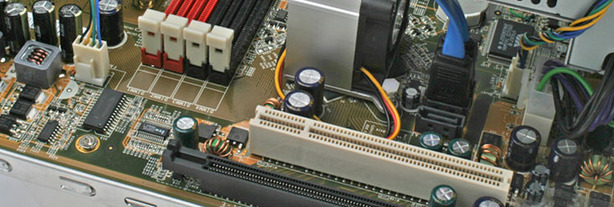Rounding things up:
In all honesty it seems to take Shuttle at least two goes to get it right when it comes to making a good looking chassis. Im not crying over the loss of the inbuilt card reader; it looked ugly despite its practicality and I have a £5 million-in-one USB version that's great to have in my bag for if ever I use a PC without one. The shiny black brushed aluminium styling looks great despite the buttons being a little funny. They just take some getting used to.Abit tried to drop all legacy ports years ago with the introduction of its I-Max series but it ended up a flop at the time. Shuttle has now followed suit in a time when USB perhiperals dominate the market and should have reached an appreciable saturation in homes and offices. If not, a nice new mouse or keyboard isn't too much, and you need to think of it as an investment in your health considering the likelyhood of pounds of grease and dust in or on your current ones.
I love the fact that Shuttle decided to include four memory slots on the SN27P2 - it makes it viable for future upgrades to larger memory quantities even if you only own 256MB or 512MB DDR2 modules at the moment. The choice of audio codec is a clever one, as it features the better Realtek ALC882 codec and both the back and front I/O panels have lots of ports for all my home theatre or console input/outputs. This makes me happy because it means that I only need one set of speakers: great potential for home theatre PCs. So, you've got masses of memory potential, hard disk space potential, graphics powerhouse potential, and a kick ass looking case!
The loss of toolless fiddling is going to be missed, but in hindsight, it never really was entirely toolless. You always need a Philips head for the PCI slot screws that have never changed since the SV24, so a LANing experience has always required the inclusion of the essential "pc builders toolkit" should something inevitably stuff up 30 minutes before Quake 'o' clock hits.

The overclocking capabilities are pretty woeful, but they never have been all that great in any of Shuttle's previous XPCs, or pretty much any SFF for that matter. We tried overclocking the SN27P2 with very little success - we stopped short of our normal routine after looking for the maximum attainable front side bus speed.
We shot for the max FSB using a 600MHz (3.0x) HTT multiplier as we normally do. We set the multiplier on our Athlon 64 FX-62 to 8.0x and our experiments ground to a halt when we got to our third stop: 215MHz. At this speed, we could no longer get into Windows. The maximum stable front side bus speed that we achieved was 210MHz, we tried everything inbetween and we were unable to get into Windows. The strange thing was that the board was perfectly stable at 210MHz - it was like walking along a tight rope.
Value:
Now the deciding factor: Price. In the UK is a "bargainous" £314 from Microdirect and then the next closest (at the time of writing) is Aria at £324. As one of the most expensive Shuttle XPCs ever (bar the SN26P, but with that you get a pair of GeForce 6800 GTs included) it's one serious cash investment. However, expect the next generation of Conroe XPCs to be a similar price given that the "cheaper" 945G chipset XPCs like the SD31P are also in the £300+ price range. It is also available in the US for $349 from Newegg which is equally as expensive, but minus the ROB factor.Final Thoughts...
With all that said though, you get what you pay for. The SN27P2 is a wholly integrated and clever barebones system that performs as well as a full ATX system, but only takes a fraction of the space. With support for AMD's socket AM2 processors, the SN27P2 is a pretty sweet barebones unit if you're not looking to overclock. Rockin'.
MSI MPG Velox 100R Chassis Review
October 14 2021 | 15:04







Want to comment? Please log in.